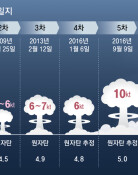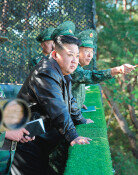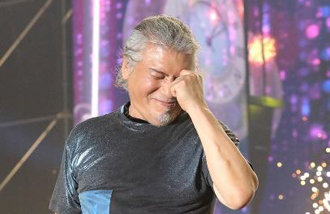Gwangju Fails to Attract 2013 Universiade
Gwangju Fails to Attract 2013 Universiade
Posted June. 02, 2008 03:00,
We did our best to the last moment Well stand up again and show them our Gwangju spirit, though.
Many sighed in disappointment. Some were too distressed to leave their seats, and broke into tears in the end.
In the early morning of June 1, the FISU Executive Committee attributed the 2013 Summer Universiade in Brussels, Belgium.
About 2,000 citizens gathered in front of the Gwangju City Hall five hours before the announcement, waving the national flags and placards with words hoping for the successful bid.
They stood the night up rooting for Gwangju and they watched the multi-television set up in the city square in silence at 3 a.m.
When George Killian, president of the Executive Committee of International University Sports Federation, spoke Kazan loudly, the square was silenced immediately. People were unable to hide their disappointment.
When some of the citizens broke into tears, others consoled them, saying it is OK. People hugged one another and cheered each other up.
Its distressing that the efforts weve made over the past months ended up in smoke, but we should give it another go using this failure as our stepping stone, said 43-year-old citizen Jeong Yeong-suk.
Jeong Gwang-il, 41, who came out to the square with his two children, said, I hoped to hear the words Gwangju, Korea from Belgium, but its disappointing. But Gwangju was beautiful this May, with all the citizens uniting into one under the same cause.
Since Gwangju was designated as a candidate city of Korea, citizens have done their best for the past five months.
In two months from the start of a signature campaign, some 1.83 million people signed their names hoping for the successful bid. More than 200,000 people registered to volunteer.
They planted flowers and grass in all colors at every corner of Gwangju even on a rainy day. When the inspectors visited the city, citizens impressed the visitors by crying out Gwangju, Korea on the streets.
Vice Mayor of Gwangju for administrative affairs Choi Jong-man said, Through this attempt, I could see that Gwangju has become one. Let us make use of the experience we have gained and bring up Gwangju as a world-class city.
Despite the passion of Gwangju, Kazan of Russia was not an easy competitor. In the first poll voted by 27 FISU Executive Committee members, Kazan obtained the majority vote and defeated Gwangju.
With the fierce competition among Kazan, Gwangju and Vigo of Spain, Gwangju expected to advance to the second poll, but was unable to pass through the first step. Following the provisions, FISU did not make open the number of votes cast for each city.
The bidding committee of Gwangju analyzed that the city lost votes because many FISU committee members voted for Kazan, which was bidding for the third time, out of sympathy, and Gwangju prepared for the bid for a short time.
It also seems that the strong moves of Russian Prime Minister Vladimir Putin influenced the result as was the case with the Winter Olympics.
In the presentation session that preceded the poll, Gwangju organized the first-in-history team of delegates from both South and North Koreas and various measures including providing accommodation and transportation costs for all participants, but failed to attract votes.
Gwangju has not yet decided whether to bid again for the 2015 Universiade.
Mayor Park Gwang-tae of Gwangju said, I feel sorry about the failure because the government gave us full support and the citizens as well. For now its impossible to tell whether to bid for the next Universiade again.
shjung@donga.com goqud@donga.com
Headline News
- S. Korea, US agree on defense const sharing-plan US presidential election
- Medical school quota discussions spark confusion 40 days before exam
- Zuckerberg surpasses Bezos to become world’s second richest person
- Son excluded from October national team due to thigh injury
- Ruing and opposition leaders launch campaigns ahead of by-election







